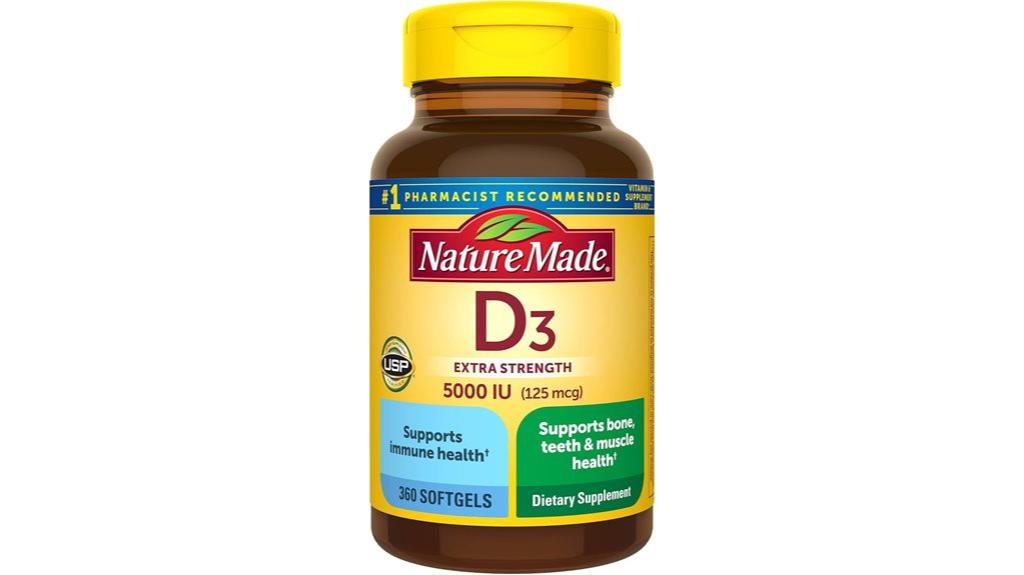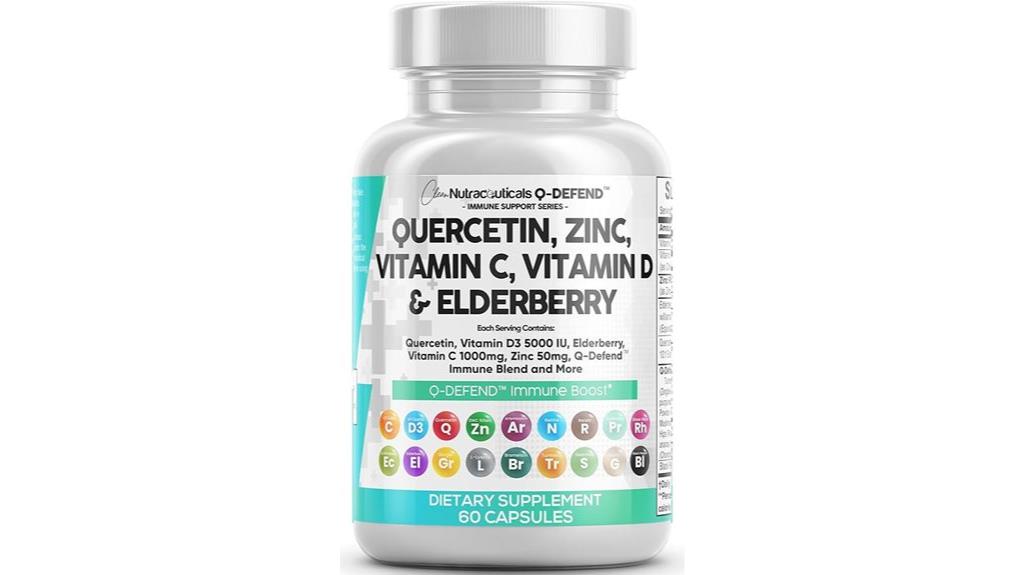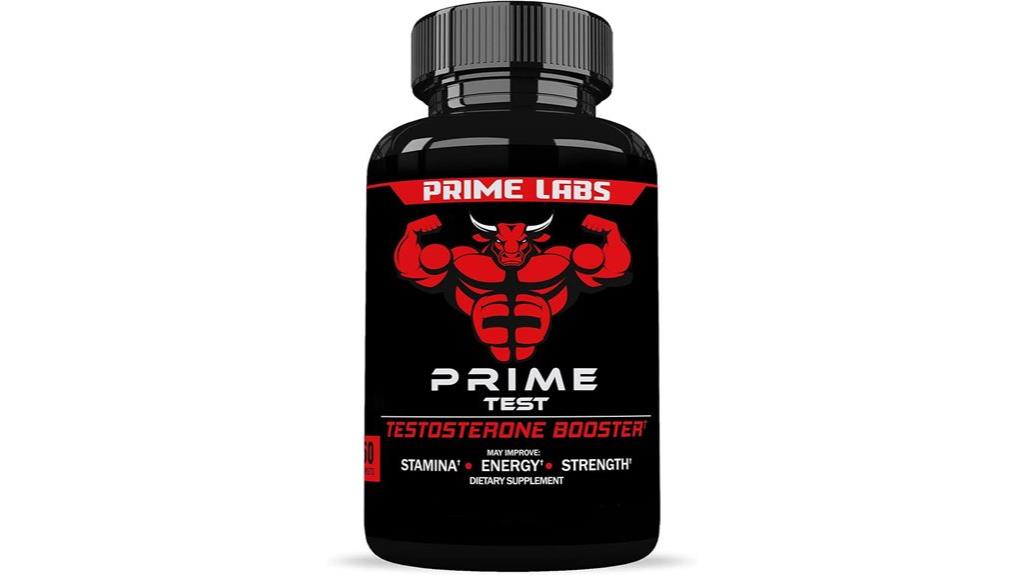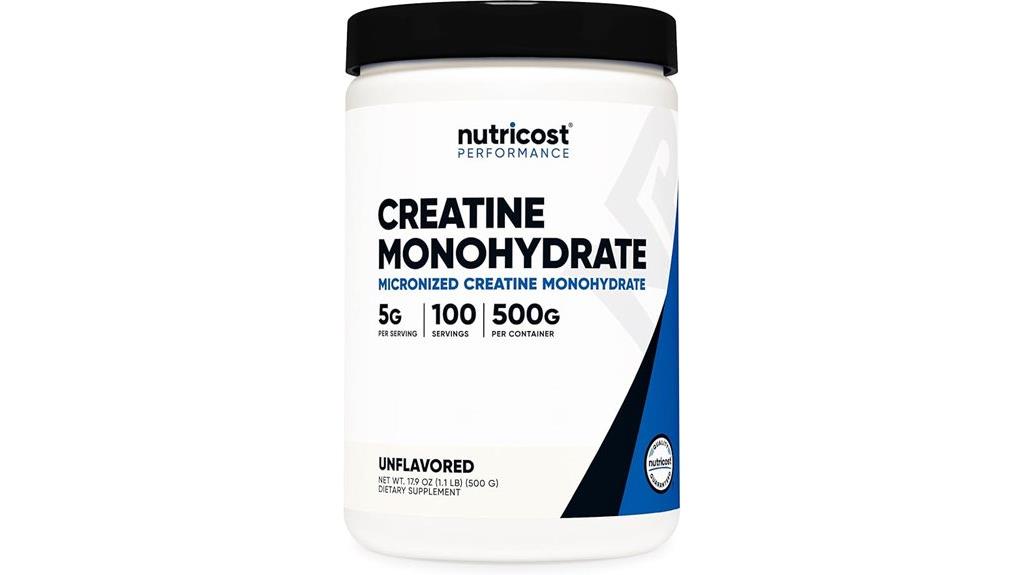You can boost your testosterone levels naturally through strategic lifestyle modifications. Start by optimizing your sleep to 7-9 hours nightly, as testosterone synthesis peaks during REM cycles. Implement compound exercises like squats and deadlifts, maintaining short rest periods of 60-90 seconds. Your diet should prioritize zinc-rich foods, healthy fats, and adequate protein while eliminating processed items and BPA-containing plastics. Manage stress through meditation or deep breathing, as elevated cortisol suppresses testosterone production. Daily vitamin D (2000-5000 IU) and zinc (11mg) supplementation can support optimal hormone levels. Understanding these foundational elements opens the door to advanced testosterone optimization strategies.
Key Takeaways
- Perform compound exercises like squats and deadlifts with challenging weights and 60-90 second rest periods between sets.
- Get 7-9 hours of quality sleep nightly in a dark environment to maximize testosterone production during REM cycles.
- Eat foods rich in zinc, vitamin D, and healthy fats, including oysters, beef, avocados, and olive oil.
- Practice stress management through meditation and deep breathing to prevent cortisol from suppressing testosterone levels.
- Avoid testosterone suppressors like BPA plastics, excessive alcohol consumption, and processed foods in daily life.
Why Testosterone Matters

Testosterone, the primary male sex hormone, serves as a cornerstone for numerous vital bodily functions that extend far beyond just sexual health.
It's essential for maintaining muscle mass, bone density, and cognitive function while regulating your mood, energy levels, and metabolic processes.
You'll find that optimal testosterone levels contribute directly to your body's ability to build and preserve lean muscle tissue, burn fat efficiently, and maintain robust cardiovascular health.
When your testosterone levels are balanced, you're likely to experience better sleep quality, increased motivation, and improved mental clarity.
Additionally, healthy testosterone production supports your immune system's function and helps maintain proper red blood cell production.
Understanding testosterone's role in your body is crucial because it affects virtually every aspect of your physical and mental well-being, from strength and endurance to emotional stability and cognitive performance.
The Power of Sleep

Unlocking optimal testosterone production begins with quality sleep, a fundamental yet often overlooked component of hormone regulation.
When you're sleeping less than 7 hours nightly, you're actively suppressing your testosterone production by 10-15%, compromising your body's natural hormone balance.
Your testosterone synthesis peaks during REM sleep, making each hour of quality rest crucial for maintaining optimal levels. If you're extending your sleep duration to 8-9 hours, you're maximizing your body's testosterone-producing potential.
Research confirms that men who consistently achieve longer sleep durations demonstrate notably higher testosterone concentrations compared to their sleep-deprived counterparts.
To optimize your sleep-induced testosterone production, you'll need to maintain consistent sleep schedules, ensure complete darkness in your bedroom, and prioritize uninterrupted rest periods.
Exercise Your Way Higher

Regular resistance training stands as one of the most potent natural stimulators of testosterone production in your body. When you engage in compound exercises like squats, deadlifts, and bench presses, you'll trigger an acute spike in testosterone levels that can last for several hours post-workout.
To maximize your hormonal response, focus on high-intensity interval training (HIIT) and heavy resistance exercises that target large muscle groups. You'll want to keep your rest periods between sets relatively short (60-90 seconds) and aim for weights that challenge you in the 6-12 rep range.
This approach optimizes both your immediate testosterone release and long-term hormonal adaptation. Complement your training with proper recovery periods, as overtraining can actually decrease testosterone levels and elevate cortisol, your body's stress hormone.
Eat Smart for Results

While exercise stimulates testosterone production, your dietary choices directly influence your body's ability to synthesize and maintain optimal hormone levels.
You'll need to focus on consuming adequate protein to support muscle maintenance and hormone production, while ensuring you're getting enough healthy fats, which serve as building blocks for testosterone.
- Include zinc-rich foods like oysters, beef, and pumpkin seeds to support testosterone synthesis and reproductive health.
- Maintain vitamin D levels through fatty fish, egg yolks, and controlled sun exposure.
- Incorporate healthy fats from sources like avocados, olive oil, and nuts to provide cholesterol, essential for hormone production.
Don't restrict calories severely, as this can lower testosterone levels.
Instead, aim for a balanced diet with sufficient protein (0.8-1g per pound of body weight), moderate healthy fats, and complex carbohydrates while avoiding processed foods.
Combat Stress Effectively

A persistent state of high stress poses a direct threat to your testosterone levels through elevated cortisol production. When your body's stress response remains activated, cortisol levels surge, creating a hormonal cascade that directly suppresses testosterone synthesis.
You'll experience both immediate and long-term impacts on your hormonal health.
To protect your testosterone levels, you'll need to implement targeted stress management strategies. Focus on activities that lower cortisol: practice deep breathing exercises, engage in regular meditation, or try progressive muscle relaxation.
You'll also want to maintain consistent sleep patterns, as poor sleep amplifies stress responses. If you're dealing with chronic stress, consider reducing high-intensity workouts temporarily, as they can further elevate cortisol.
Instead, incorporate moderate exercise and recovery-focused activities until your stress levels normalize.
Key Vitamins and Minerals

Beyond managing stress, your body needs specific micronutrients to maintain optimal testosterone production. Research shows that vitamin D and zinc play crucial roles in hormone synthesis, while magnesium supports both testosterone production and protein synthesis.
You'll want to ensure adequate intake of these essential nutrients through diet or supplementation to optimize your hormonal health.
- Vitamin D: Your body requires 2000-5000 IU daily, obtained through sunlight exposure or supplementation, as deficiency correlates with reduced testosterone levels.
- Zinc: Aim for 11mg daily through foods like oysters and beef, or supplements, as zinc deficiency can significantly impact testosterone production.
- Magnesium: Target 400mg daily from leafy greens and nuts, as this mineral helps free bound testosterone and supports hormone function.
These micronutrients work synergistically to maintain your body's testosterone-producing capabilities and overall hormonal balance.
Avoid Hidden Testosterone Killers

Many seemingly harmless everyday items and habits can secretly undermine your testosterone levels without obvious warning signs. BPA-containing plastics, receipt papers, and food containers can disrupt your endocrine system, while common personal care products containing parabens may interfere with hormone production.
Your daily routine might include other hidden testosterone suppressors: excessive alcohol consumption can drop your levels within 30 minutes, while chronic sleep deprivation of just 5 hours per night reduces testosterone by up to 15%.
Unmanaged stress elevates cortisol, directly impacting testosterone production. Even your food storage choices matter – heating plastic containers or storing acidic foods in them can increase your exposure to hormone-disrupting chemicals.
To protect your testosterone levels, switch to glass containers, limit alcohol intake, prioritize sleep, and choose paraben-free personal care products.
Lifestyle Changes for Better Health

Making positive lifestyle adjustments strengthens your body's natural testosterone production while counteracting the environmental threats previously discussed.
You'll need to focus on multiple aspects of your daily routine, targeting both physical and behavioral modifications that support optimal hormone function. Research shows that implementing strategic lifestyle changes can help maintain healthy testosterone levels even as you age.
- Prioritize resistance training and HIIT workouts 3-4 times weekly, as they've been scientifically proven to boost testosterone production within 30 minutes of exercise.
- Structure your sleep schedule to achieve 7-9 hours nightly, since testosterone production peaks during deep sleep cycles.
- Adopt a nutrient-dense diet rich in zinc, vitamin D, and healthy fats while eliminating processed foods and excessive alcohol that can suppress hormone levels.
Signs of Low T

Understanding the warning signs of low testosterone (Low T) empowers you to recognize potential hormonal imbalances before they significantly impact your health.
If you're experiencing persistent fatigue, decreased muscle mass, increased body fat, or diminished sex drive, you might be dealing with Low T. Watch for mood changes, including depression and irritability, as these can signal hormonal decline.
Physical indicators you shouldn't ignore include reduced bone density, difficulty maintaining muscle strength despite exercise, and changes in body composition.
You might notice decreased facial or body hair growth, and some men experience hot flashes. Sleep disturbances, particularly insomnia, often accompany Low T.
If you're over 30 and experiencing several of these symptoms, your testosterone levels may have declined beyond the natural 1-2% annual reduction.
Natural Supplementation Strategies

While prescription medications can address testosterone deficiency, several natural supplements have shown promising results in supporting healthy hormone levels.
Your supplementation strategy should focus on addressing common deficiencies that impact testosterone production, particularly vitamin D and zinc.
- Vitamin D3 supplementation of 3,000-5,000 IU daily can help restore optimal levels, especially if you're among the billion people worldwide with insufficiency.
- Zinc supplementation of 30-40mg daily has been shown to increase testosterone levels and improve sexual function, particularly in men with low T.
- Adaptogenic herbs like ashwagandha have demonstrated the ability to reduce cortisol and support testosterone production when taken at doses of 600mg daily.
Monitor your levels regularly and consult your healthcare provider before starting any supplementation routine, as individual needs vary based on deficiencies and overall health status.
Monitor Your Progress

Regular monitoring of testosterone levels and related health markers serves as a crucial cornerstone for optimizing hormone health. You'll need to track both objective measurements and subjective indicators to assess your progress effectively.
| Marker Type | What to Monitor | Frequency |
|---|---|---|
| Blood Tests | Total T, Free T, SHBG | Every 3-6 months |
| Body Composition | Body fat %, muscle mass | Monthly |
| Performance | Strength, energy, libido | Weekly |
Don't rely solely on blood tests – track your daily energy levels, workout performance, and sleep quality. Document these metrics in a health journal or smartphone app. You'll want to schedule comprehensive hormone panels with your healthcare provider to measure total testosterone, free testosterone, and related hormones like estradiol and cortisol. This data-driven approach helps you adjust your lifestyle interventions and identify what's working best for your body.
Frequently Asked Questions
Can Testosterone Levels Affect Hair Growth or Loss Patterns?
Yes, your testosterone levels directly influence hair growth patterns. When converted to DHT (dihydrotestosterone), it can trigger male pattern baldness in genetically susceptible individuals, while also promoting body and facial hair growth.
Does Sexual Activity Frequency Impact Testosterone Production?
While you might think frequent sex depletes testosterone, it actually helps maintain healthy levels. Your body increases testosterone during sexual activity, though the boost is temporary and most significant when you're actively engaged.
How Do Blood Sugar Levels Influence Testosterone Production?
Your blood sugar spikes can suppress testosterone production, while stable glucose levels support optimal hormone function. You'll maintain better testosterone levels by controlling insulin through balanced meals and regular exercise.
Can Certain Medications Interfere With Natural Testosterone Production?
Ever wonder about your meds? Yes, medications like opioids, antidepressants, and corticosteroids can disrupt your body's testosterone production. You'll want to discuss these effects with your healthcare provider for proper hormone management.
Does Testosterone Replacement Therapy Affect Fertility in Younger Men?
Yes, TRT can significantly reduce your sperm production and fertility by suppressing natural testosterone and sperm production. You'll want to discuss fertility preservation options with your doctor before starting testosterone replacement therapy.
Conclusion
While you've focused intensely on optimizing your testosterone levels through scientific interventions, it's ironically the simplest adjustments that yield the most significant hormonal impacts. You'll find that reducing screen time, embracing natural circadian rhythms, and maintaining consistent sleep patterns can elevate your testosterone more effectively than complex supplement stacks. Monitor your serum levels regularly, but don't overlook the fundamental biochemical responses to these basic lifestyle modifications.
Join The Discussion
What’s your go-to method for naturally enhancing testosterone levels? Share your favorite workouts, supplements, or nutrition tips. Let’s empower each other to achieve peak hormonal health!

Optimize your lifestyle with these proven products designed to support your testosterone levels naturally while boosting energy, strength, and overall health.






